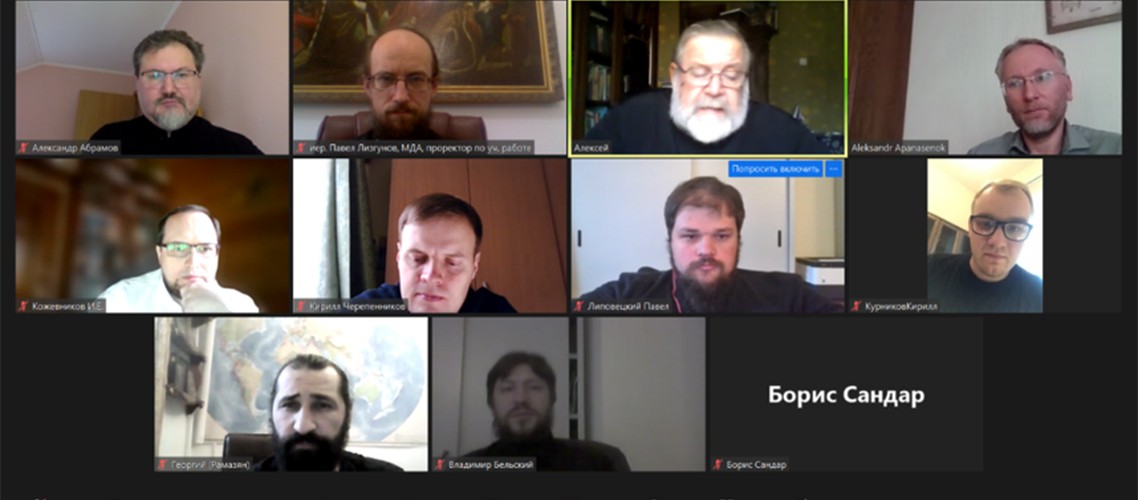
A round table "The problem of identity of Orthodox Christians, the Soviet Union citizens"
On October 27, the Moscow Theological Academy hosted a round table on "The problem of identity of Orthodox Christians, the Soviet Union citizens".
An online conference was taken within the framework of a research project "Soviet Identity and the Problems of Religiousness: Orthodox Practices in the Everyday Life of the USSR Citizens in the 1940s - 1980s", supported by the Russian Foundation for Basic Research (project No. 21-09- 43066) and implemented at the Regional Open Social Institute (Kursk).
The speakers were Priest Pavel Lizgunov, Vice-Rector for Academic Affairs of the Moscow Theological Academy; Professor A.K. Svetozarsky, Head of the Church History Department, Archpriest Alexander Abramov, Dean of the St. Sergius of Radonezh church in Krapivniki and an academic teacher; P.E. Lipovetsky, PhD in Theology and Dean of the Theological and Pastoral faculty, A.V. Apanasenok, Doctor of History and Vice-Rector for Science and Foreign Affairs of the Regional Open Social Institute (Kursk), as well as teachers and students of the Moscow Theological Academy.
The participants discussed a wide range of questions related to a “double identity” issue of Orthodox Soviet citizens who were forced to co-exist in two compatible systems of the Orthodox faith and a Soviet ideology. Priest Pavel Lizgunov and Professor Alexander Apanasenok presented some key ideas of the research project. Professor A.K. Svetozarsky dwelled separately on a personality of Archpriest Alexy Ostapov, a personal assistant of Patriarch Alexy I and a teacher at the Moscow Theological Academy.
Archpriest Alexander Abramov expressed a number of valuable methodological ideas, emphasizing the high relevance of the "history of the lower classes" for modern church history. It is designed to supplement a well-studied history of church hierarchs with a thorough analysis of the peculiarities of their everyday lives and lives of ordinary people. During the discussion, they raised many problematic issues and topics for further research.
MThA Press Office
